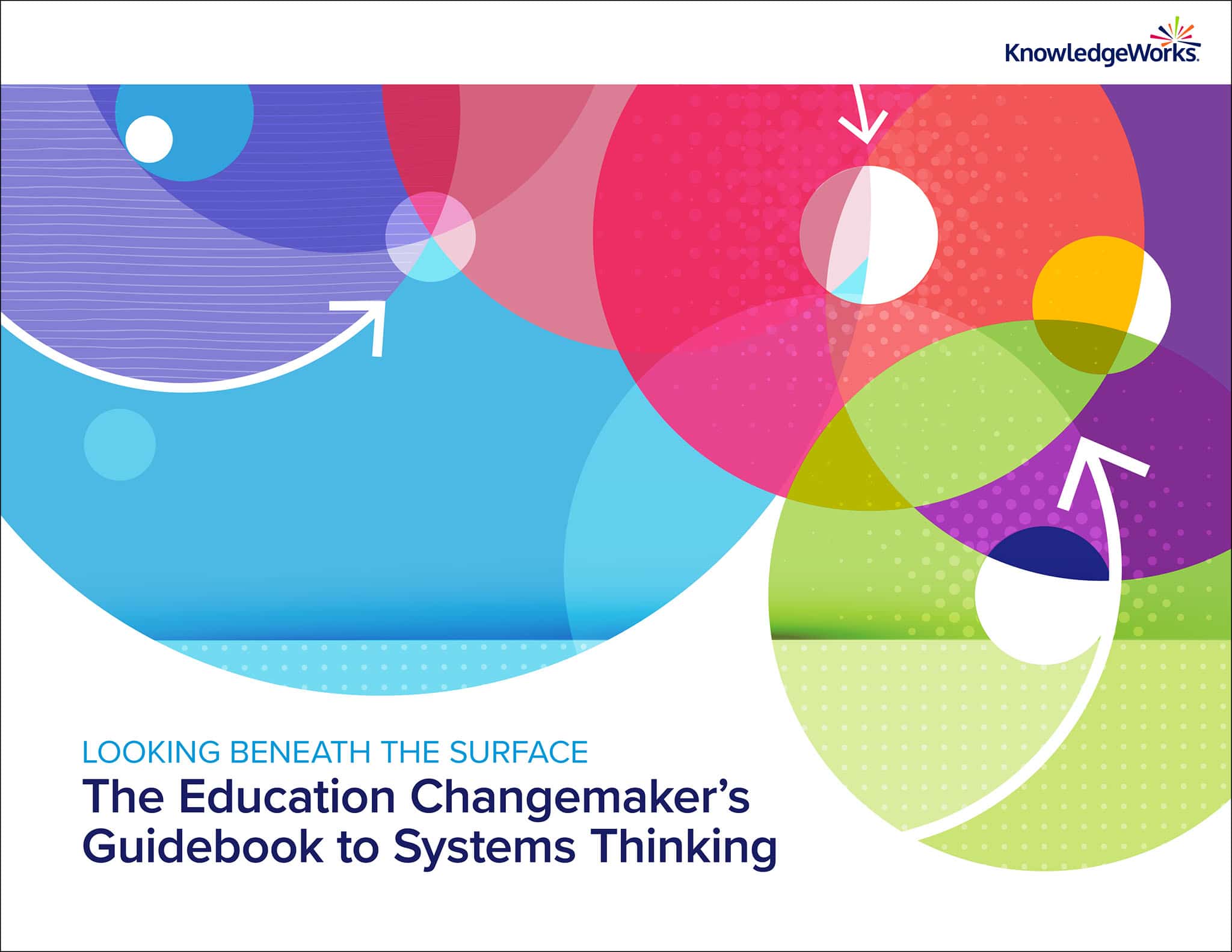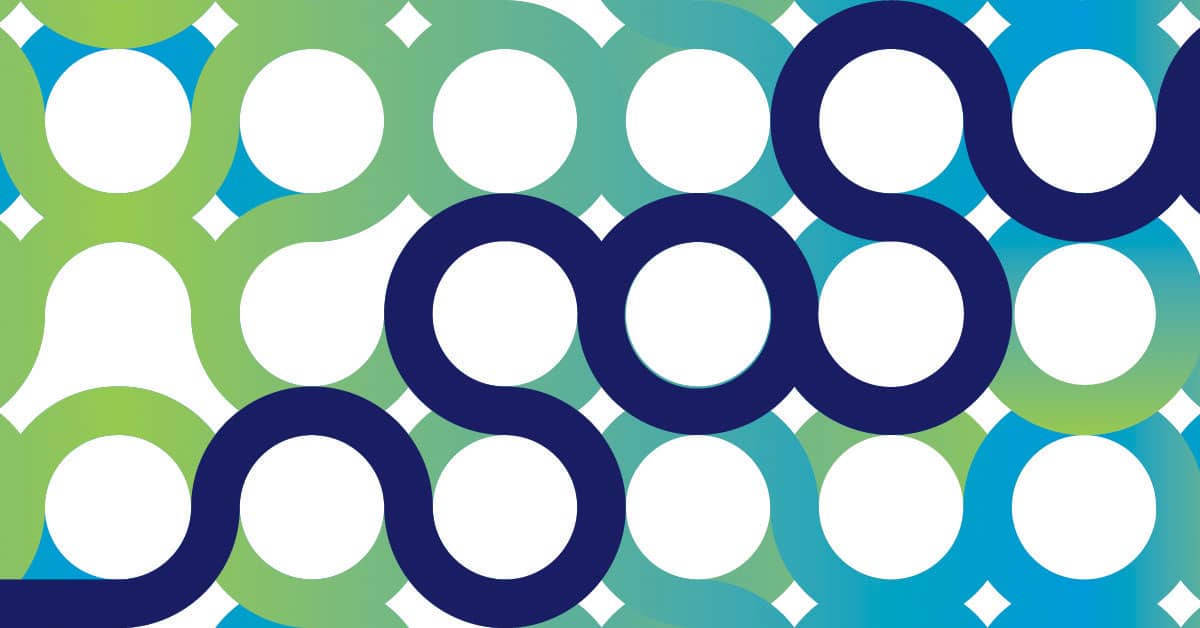Laying the Foundations for Systems Change
The way we work, teach, live and learn is changing at an accelerating rate. Educators must consider how their practices today will shape the future of learning tomorrow – and what roles students, communities and policymakers might have in shaping that future, too.
Systems transformation
Every generation of learners challenges the capacity of the system to meet their unique needs. As our society continues to change, systemic inequities that limit meaningful educational opportunities continue to surface. KnowledgeWorks supports partners with systems transformation efforts that address these inequities to meet the needs of each learner.
Systems transformation is a continuous, community-driven journey. The purpose is to ensure the system is responsive to the needs of each learner, allowing individuals to meet their potential and be prepared for their desired future. KnowledgeWorks embeds conditions that foster agency in partners and communities to lead and sustain the systems transformation journey.
Developing shared visions
Working at both the state and federal levels, KnowledgeWorks partners across various levels of education systems – including policymakers, educators, learners and business and community leaders – to develop shared visions for the future of education within their local contexts. For true systems change and long-term success, a shared vision must be created by and live throughout a community. Learn more »
Opportunities for policy change
State leaders play an important role in supporting the growth of personalized, competency-based education at the school and district levels. KnowledgeWorks is committed to helping policymakers advance their shared visions by:
- Building public will for systems transformation and visions for policy change that supports personalized learning at scale
- Building state- and district-level capacity to sustain high-quality personalized learning environments
- Creating flexible policy environments to pilot, evaluate and scale personalized learning
- Closing opportunity and outcomes gaps
- Aligning state and federal policy to support personalized learning nationwide
Systems thinking
Everything and everyone that affects education and are affected by education are part of the education system. To make an education system run for each learner in a learning community, we must examine the parts and their dependencies to see what can be elevated or restructured.
Systems thinking supports an understanding of the complexities of the education system, which informs systems transformation. We work with our partners to foster systems thinking by applying systems thinking tools to new contexts, analyzing the complexities of the system, its parts and their dependencies. We help partners bring a holistic understanding of their system to action-oriented transformation efforts. Systems thinking allows us to see that there is not one top-down solution to systems transformation but a set of opportunities that can be leveraged to effectively transform the system.
Ultimately, systems thinking can help us deepen our understanding of what stands between us and our shared visions and figure out what it might take to bring those visions to life.
Futures thinking
It can be hard to imagine future possibilities in education when we are focused on what is in front of us or when so much is uncertain, whether that is the next month or the next decade. Futures thinking tools equip learning communities to consider their preferred futures and identify strategies for bringing them to life in a changing world. KnowledgeWorks helps people across the education spectrum build their capacity to shape the future by examining education trends in our forecasts, providing actionable resources and facilitating sessions based on your specific needs. Learn more »
Meaningful engagement in community context
While KnowledgeWorks has the tools to implement personalized, competency-based learning at the state and district levels in helping communities develop and pursue their own visions for what every learner needs to excel, identifying policy barriers and using futures and systems thinking tools, every local context is different. That’s why it’s critical to begin with the individuals closest to the learning.
When describing her district’s process for approaching how they were going to do strategic planning differently, Kelly Coffin kept bringing it back to the people.
“It’s very important that those closest to the work are those setting the direction,” said Coffin, assistant superintendent of innovation and strategic initiatives at Farmington Public Schools, a KnowledgeWorks partner in Michigan. Instead of a traditional hierarchical approach, individuals from throughout the learning community were invited into the district’s strategic planning process – from students and educators to community members and parents. While the district has a mission and a vision for what they want, Coffin stresses that “those closest to the work know where we need to start, and they have the credibility with the community to move it forward.”
Providing a way for meaningful engagement for everyone is part of the district’s work to create a culture of equity and innovation – and to be clear about what they mean when they’re talking about it.
“We’re doing a lot of work as a community to understand what we mean by equity and innovation to try to develop a common understanding,” said Coffin. “We’ve done a lot of work historically in Farmington around equity, but if people misunderstand the information, or compartmentalize it, we can justify staying the same.”
Serving some learners well but not others, hearing from the same education leaders and decisionmakers instead of finding ways to include all voices, not challenging the way things are done because that’s the way they’ve always been done – none of these are options for us or for us or for the learning communities we partner with.
Tools to Start Systems Transformation
It can be hard to start the journey of systems change. We’ve been developing the tools to help you do that.

Looking Beneath the Surface is a guidebook that introduces education stakeholders and changemakers to the theories, language, mindsets and tools of systems thinking for the purpose of informing approaches to systems change.
